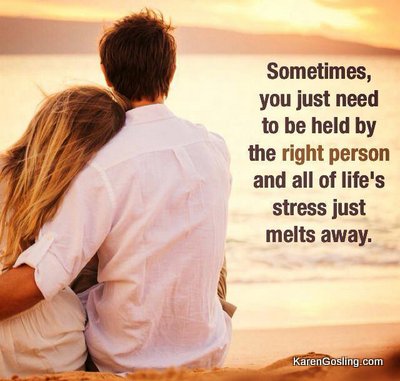Are you choosing to be miserable and holding on to your resentments?
Have you considered how much ‘cost’ is accumulated when resentments build, such as from not getting what you want in a broken relationship?
Dr Mike Gosling shows us how to resolve resentments.
Recently, my cousin referred me to a video on the web. I learned so much from Randy Pausch’s life experience – his fight against pancreatic cancer, his humility, his gratitude. He said, “Experience is what you get when you don’t get what you want.” How often in life have you not gotten what you want?

Aldous Huxley said, “Experience is not what happens to you; it’s what you do with what happens to you.”
I’ve had some pretty awful experiences in my life – my first wife left me and took my twin 2 year old daughters with her more than 30 years ago. That was not what I wanted.
Twenty years ago, after following a calling to be a pastor in the Lutheran Church of Australia, and completing four years of difficult study under financial stress, I was rejected for ministry by the church without any explanation whatsoever. That was not what I wanted either.
But heck, I’m not dying from pancreatic cancer as Randy Pausch was at the time he gave his last lecture. Who am I to complain when Randy lost his life – something he didn’t want!
Randy stopped whining long ago about his experience and started living. That’s not to say he didn’t have bad days. I imagine he and his wife had many difficult moments when they faced their grief of a lost life together; when they faced the fact that their young children would not have a dad. But they picked life up and moved on for their children, for whom they were so grateful.
I did the same. When I was feeling down recently, my wife Karen, said to me, “Hey Mike, everyone needs something to do, someone to love, and something to look forward to. We have it all.”
She’s right, you know. How often do we get caught up in trying to get what we want – sometimes at any cost. Many of us exert so much energy in taking on someone or something we feel is ours; our right or entitlement. And when we don’t get what we want we get angry or anxious and experience bodily reactions that cause us ill health.
There is a cost we have to pay, either for the life we want or don’t want.
I think we get to want what we want in life, unless, like Randy, we do something with what happens to us. For example, if we want to be miserable we will get to want to be miserable, unless we take ownership of our situation and work on it. If we want joy, riches, and happiness, we will get to just want those things, unless we take action steps to reach our goals.
Each has its cost. If we can let go of the concept of ‘cost’, and therefore of wanting, and move into present moment awareness where there is only living, we will have abundance.
In any event, it seems to me the cost of being miserable far outweights the cost of being happy and yet many of us choose to be miserable because we only get to want what we want. It’s a paradox – We actually pay more to be what we don’t want to be. We get trapped in the habit of “wanting” and lowered self-esteem instead of leveraging on the resources we have to live full lives.
We have become preoccupied with wanting. Instead of getting those things that we want in life, we simply get to want them. It’s a vicious cycle. How do we break the cycle of ‘wanting’ and move into the cycle of ‘abundance’.
Public figure, Deepak Chopra, argues that we must put our intentions (our needs or what we want) out into the universe and become detached from them. By being detached we are free from wanting—free to take action steps that result in the progressive realization of worthy goals.
I agree with Deepak. The difficulty lies is in letting go of my ‘wants’ and continually measuring their cost, so that I can enjoy present moment abundance.
- First, say “I’m sorry” to the person you have hurt or offended.
- Next, acknowledge “It was my fault”.
- And finally, ask the person you have hurt, “How do I make it right?”

Karen Gosling from Relationship Counselling Gold Coast is dedicated to teaching you how to resolve resentments in your relationships so that you can ‘do the right thing’. Don’t look outside of yourself for a leader. Start today to exercise leadership in your relations with others.
Above all, like Randy, who is an inspiration for us all, have an attitude of gratitude for all that you have in life. Know that there are others not as fortunate as you.
I’m so happy and grateful that I am now attracting an abundance of money, health, and great people into my life. I’m so grateful that my cousin sent me Randy Pausch’s “Last Lecture” to watch. I learned to show humility toward others in all I do. Randy taught me that even in the most trying of circumstances I can be grateful for what I have been given and not live a life of always ‘wanting’. In Randy’s case he was grateful for a professorship, marriage, three wonderful children, and a life that ended too soon.
How To Move On From Resentments: Action steps…
Say “I’m sorry…” Learning how to resolve resentments is one key to making a better relationship. Today is your chance to heal a relationship where you did not get what you want. It may be a minor hurt or a major resentment. Now that you know how to say, “I’m sorry…”, it’s time to put what you’ve learned from Randy Pausch into practice. Don’t wait until a better time. Right now, this instant, connect with the person you have offended, either ring, email or write to them, and say the three steps below to them. Remember that even if your apology is not accepted, you have done the right thing.
- First, say “I’m sorry” to the person you have hurt or offended.
- Next, acknowledge “It was my fault”.
- And finally, ask the person you have hurt, “How do I make it right?”
The person saying, “I’m sorry” is the one who gets the most benefit from doing so.
Are you ready to reconnect in your relationship and start to rekindle your romance?
Knowing how to move on from resentments is one of the most important steps in rebuilding your relationship.
When you’re trying to fix your relationship but your emotions are out of control, you will always end up fighting. It’s time to get some professional help.
You can change this today.
I can help you to:
- Grow your emotional skills – emotional skills are far more important than any functional skill in achieving a high level of peace and calm within oneself.
- Know your emotional style – your emotional style effects how you react in emotional situations.
- Understand your emotional brain – learn how your brain effects your personal emotions.

